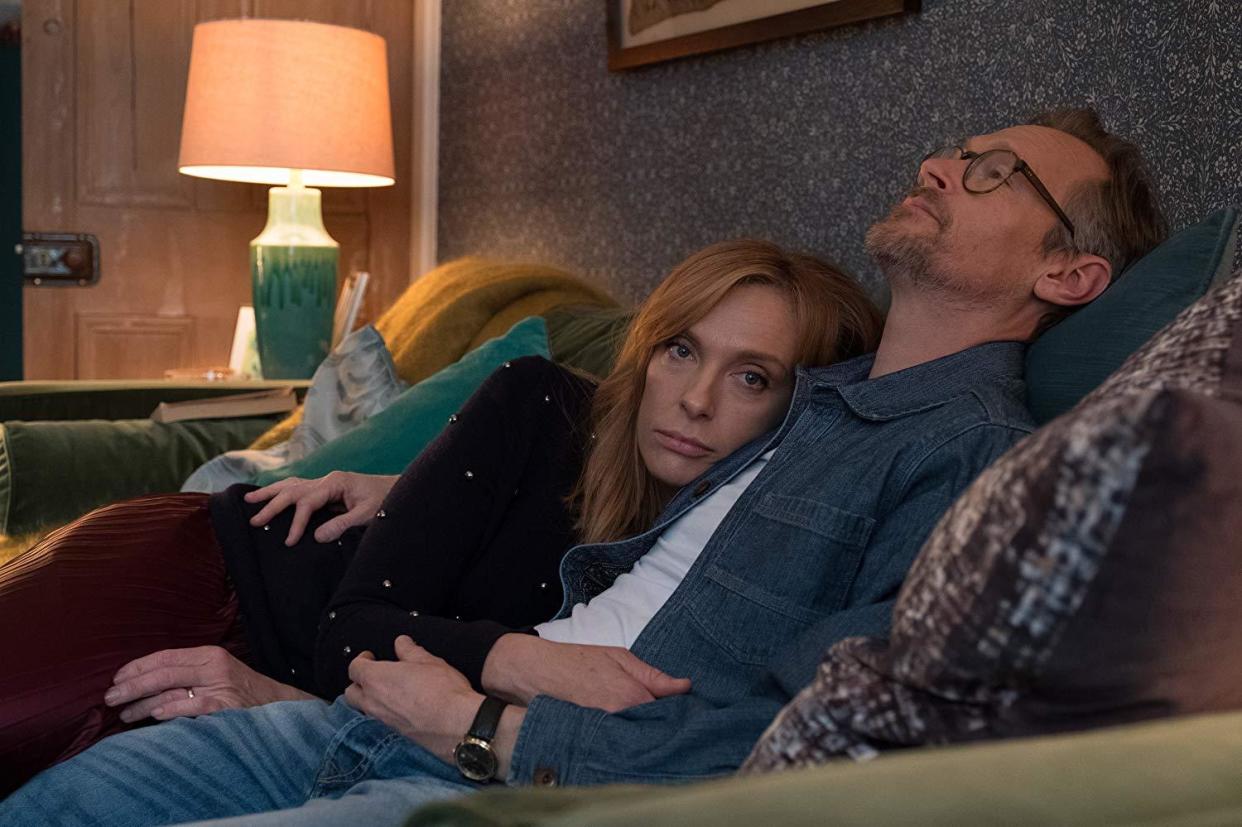Wanderlust episode 3 review: Viewers have to really like watching other people having sex to enjoy this BBC drama

Week one: onanism. Week two: adultery. Last night: a snogging masterclass, in which one sexual novice is informed “it’s not like a shoving a spoon inside a pudding”. That’s news to me, anyhow.
My point being: a viewer has to really, really like watching other people having sex, talking about sex and just generally being into sex – not necessarily intersex – to get the very best of out of Wanderlust. When it’s raining, it makes a decent alternative to going out dogging. Next week? I have no idea, frankly, but I have a terrible, terrible feeling they’re going to go intergenerational in some quite diabolical fashion. That’s not a recommendation to view, by the way.
So, yes, I do wonder where it will all end with Wanderlust, BBC1’s barely-beyond-the-watershed drama serial about the life and times of an “open marriage”. Well, apart from the entirely predictable spat between the BBC and our popular press. Despite its focus on family life, it’s not what I’d call family viewing.
Anyway, the Richards family. Will they survive? That’s what it’s about. And it’s not looking good for them.
Mother Joy (Toni Collette) and father Alan (Steve Mackintosh) still love each other very much, even after 19 years of marriage but, to borrow a phrase, they’d quite like to “make sex great again”. Fine – who wouldn’t? – but instead of popping down to Ann Summers or putting on a Charles Aznavour LP, they decide on the more radical experiment of a consensual “open marriage”, and start hitting on other people. They thus embrace lust and “guilt-free” sex. What could possibly go wrong?
It’s all been rather selfish, and you feel sorry for their “lovers” when they get told the truth by one or other of the Richards, with all the matter-of-fact brutality of a Universal Credit claims manager telling someone their housing benefit is being unavoidably delayed. The lover, all excited about their illicit “affair” is summarily relegated over coffee to a means by which Joy and/or Alan can get turned on. I mean, who wants to be treated like a human sex toy? Yes, I know, thousands of you do. Good luck.
At last, after Joy is spotted with a new boyfriend at a club by her daughter, they decide to fess up to the kids. Joy tells their three teenagers “me and your dad have decided to start seeing other people”. In the words of Alan, “it’s all gravy” –which I hope has never been the case literally. Son Tom (Joe Hurst) cries, younger daughter Naomi (Emma D’Arcy) shrugs. And with an acuity suggesting a career in journalism beckons, elder daughter Laura (Celeste Dring) gets straight to the heart of the matter, and asks: “Just sex? No love?”
The answer, of course, from mummy and daddy is complacently positive. The open marriage is rationed to one partner at a time – each – and then not very often. There is to be “no epic suburban sex network”. There will be no divorce…
Now it starts to go wrong. Alan, an unprepossessing English teacher and the world’s least likely lothario, starts to fall in love – actual romantic, mushy love – with Claire (Zawe Ashton), a fellow teacher who had, ironically enough, agreed to the “sex not love” proposition he had earlier put to her. But now poor old Alan starts drooling and drivelling about sex and love being whole and inseparable. Meanwhile, Joy’s chance encounter with an old flame – who she bumps into while doing a bulk buy of condoms and lube at Boots, as you do – looks to be equally threatening to the stability of the open arrangement.
It’s all getting tangled then. And I must confess to deriving much satisfaction from the disintegration of the Richards’ arrogant polyamorous plots. Much against my better instincts, I’m being seduced by Nick Payne’s sexually infused screenplay.

 Yahoo News
Yahoo News 
